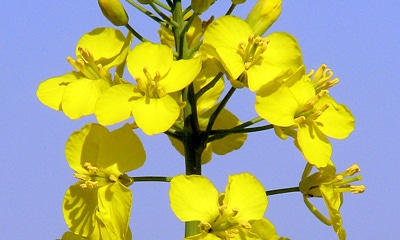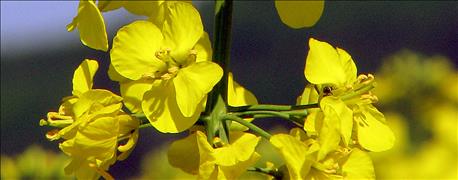
Are you concerned about using fungicides in your operation? Some research shows that the use of cover crops may help reduce the need for fungicides.
Shannon Zezula, state resource conservationist with the Natural Resources Conservation Service, and other key NRCS staff members are aware of this research. Zezula and company provided the information presented here. Their activities to spread the word about the benefit of cover crops are backed by several members of the Indiana Conservation Partnership.

DISEASE HELP? Cover crops like rapeseed, a brassica, pictured here, may help minimize disease concerns. (Photo courtesy of the Natural Resources Conservation Service.)
In some cases, it appears that the use of brassicas, such as various mustards or rapeseed, has been shown to provide a suppression of fungal issues. These fungal issues usually lead to diseases, typically in corn. Weather conditions need to be right and favor the organism for the disease to be more prevalent than it might be if conditions aren’t favorable.
To see if growing cover crops would help with disease suppression and prevent you from needing a fungicide on your farm, consider setting up strip trials in a field. The width of the strips should be at least twice the width of your combine header.
And, as with all field-level trials, make sure to leave a control strip. With the assistance of your local crop adviser, monitor the strips over the growing season, noting any differences in disease incidence, crop health and yield.
Diseases typically show up on leaves first in corn. In 2015, gray leaf spot and northern corn leaf blight were appearing in late June to early July. Shifting weather patterns later in the season helped some growers avoid losses that might have been very large otherwise.
The idea that cover crops might help minimize corn disease issues first came up in an Indiana Prairie Farmer article last year. So far, the idea appears to hold promise, but it has not been confirmed conclusively yet.
About the Author(s)
You May Also Like




